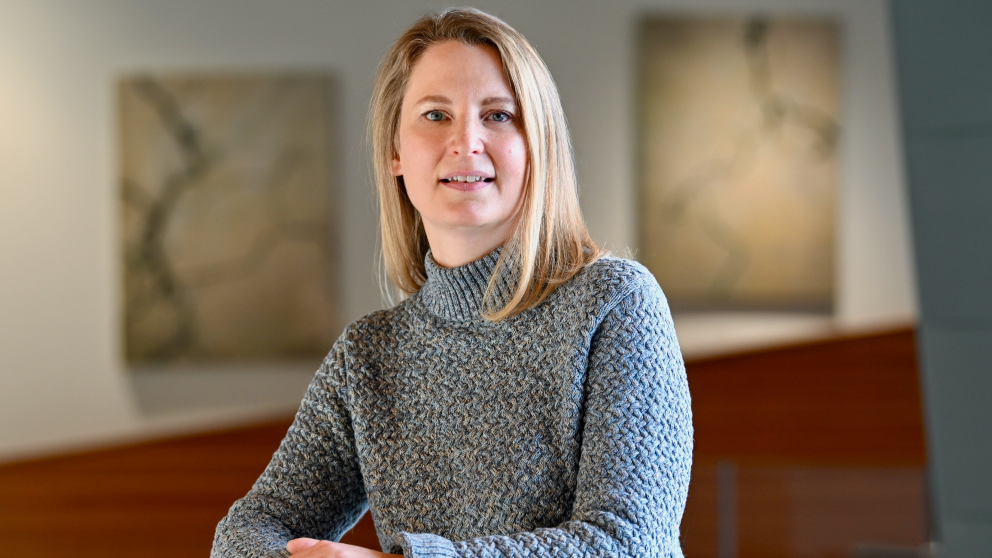 The Jackson Laboratory's Silke Paust. Photo credit: Cloe Poisson
The Jackson Laboratory's Silke Paust. Photo credit: Cloe Poisson
Silke Paust, Ph.D., is investigating the roles lung natural killer cells play in clearing influenza virus infection and preventing damage to healthy cells during infection.
Influenza viruses pose a significant threat to global public health, causing millions of infections and hundreds of thousands of deaths each year. These viruses remain formidable adversaries due to their ability to rapidly mutate to avoid the body's immune system and become resistant to targeted treatment methods. At The Jackson Laboratory, Professor Silke Paust, Ph.D., specializes in developing and testing novel immunotherapies focusing on natural killer (NK) cells. NK cells are a type of white blood cell tasked with eliminating pathogens and cancer cells from the body. The Paust lab recently discovered that mast cells, a kind of immune cell known mainly for inducing allergic reactions such as anaphylaxis, play a significant role in suppressing the antiviral functions of NK cells in influenza A virus (IAV) infected lungs. Supported by a new R01 grant from the National Institute of Allergy and Infectious Diseases, the Paust lab intends to further evaluate novel pathways regulating NK cell function in influenza virus infection as a potential target for novel antiviral immunotherapies.
An immune system balancing act
In prior studies, the Paust lab observed that influenza virus infections triggered an immunoregulatory cytokine called Interleukin 10 (IL-10) in both wild-type and T- and B-cell deficient mice (Rag1-KO). Cytokines act as chemical messengers, influencing other cells within the immune system network. In this case, by producing IL-10, lung mast cells suppressed the ability of lung NK cells to respond to viral infection. When this pathway was therapeutically blocked in Rag1-KO mice, NK cells could significantly reduce infection deadliness and contribute to viral clearance. The same results were observed in human lung cell samples.
However, the role of IL-10 continues beyond there. Paust found that in mice lacking the IL-10-induced pathway, prolonged immune infiltration and tissue damage called immunopathology were observed after the infection had cleared. This underscores the delicate balance maintained by IL-10 in regulating the immune response to influenza.
"Balancing immunity with reduced immunopathology is crucial for developing effective treatments against infectious diseases," says Paust. "It's about finding the delicate equilibrium where we can clear the infection without causing harm to the body's own tissues, ultimately ensuring both the eradication of pathogens and the preservation of host health."
Diving deeper
The Paust lab plans to further investigate how immunomodulation regulates lung NK and T-cell function in mice and humans and how these immune checks and balances effectively clear influenza virus infection without harming the body's own tissues. The work will have important implications for understanding how the immune system responds to acute viral infections like influenza, with the ultimate goal of developing novel therapeutics that augment the immune response to clear infection while avoiding harmful immunopathology.